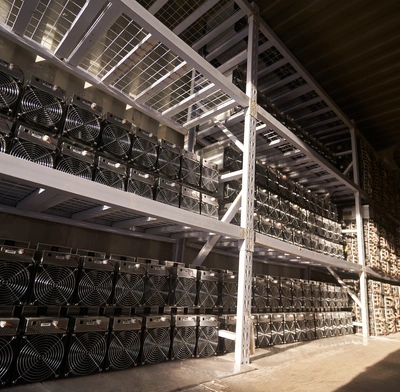British Columbia has moved to ban new power connections for crypto mining and restrict allocations for AI data centers, in a bid to preserve clean-energy capacity for critical industries.
British Columbia Bans New Crypto Mines as AI Strains Grid Capacity

Clean energy meets computing demand
The Energy Statutes Amendment Act, passed this week, extends a moratorium first enacted in 2022 amid what the Canadian province called “unprecedented demand for electricity,” in a 20 Oct statement. It reflects a growing recognition that the twin booms in crypto mining and artificial intelligence are testing even the most renewable grids.
According to data from the Cambridge Centre for Alternative Finance, the Bitcoin network alone consumes 155-172 terawatt-hours (TWh) of electricity annually, roughly equal to Poland’s total power use.
Energy economics and political farming
Premier David Eby described the move as part of a broader economic and environmental reset.
“BC will be the economic engine that drives a more independent Canadian economy — powered by clean energy, and built through partnership with First Nations,” Eby said in the statement.
The measure is tied to the North Coast Transmission Line (NCTL), a multibillion-dollar expansion of BC’s power infrastructure designed to support traditional mining, natural gas, and low-emission LNG (liquefied natural gas) sectors the province deems essential for growth.
The plan, backed by BC Hydro and the First Nations Major Projects Coalition, also aims to give indigenous communities co-ownership stakes in new transmission assets.
Limited economic benefit
Cryptocurrency mining would not help people or the economy enough to qualify for new renewable power resources and is effectively banned, therefore.
The provincial government cited the "disproportionate energy consumption" and "limited economic benefit" of actions to increase the available supply of Bitcoin, clearly underscoring its decision:
"New BC Hydro connections for cryptocurrency mining will be banned permanently," according to the statement.
A global shift in energy policy
BC’s stance echoes moves elsewhere. The southeast Asian country of Laos will shut down all crypto-mining operations by early 2026 due to power shortages tied to its hydro grid, while Kazakhstan has imposed surcharges and permit caps after crypto mining reached 6% of national electricity use.
In the US, states such as New York and Washington have introduced temporary moratoriums or tiered energy pricing for data-heavy industries.
Globally, crypto mining emissions are estimated at 65–70mn tonnes of CO2 annually, or about 0.15% of total global emissions. Meanwhile, AI workloads could consume nearly half of all data-center electricity by the end of 2025, up from roughly 25% in 2023, according to the International Energy Agency.
Redefining the value of a kilowatt
For investors and digital-infrastructure operators, BC’s policy signals a fundamental shift in how governments value electricity. Power-intensive computing is no longer viewed as innovation by default; it‘s now judged by employment yield, fiscal impact, and carbon efficiency.
Some Bitcoin miners are already adapting, converting facilities into AI compute centers as the remaining Bitcoin supply dwindles and block rewards shrink. Yet the industry faces a shrinking global map of viable locations.
What began as a provincial adjustment in Canada may prove the opening shot in a new global competition – one where crypto and AI no longer battle for market share, but for megawatts.




